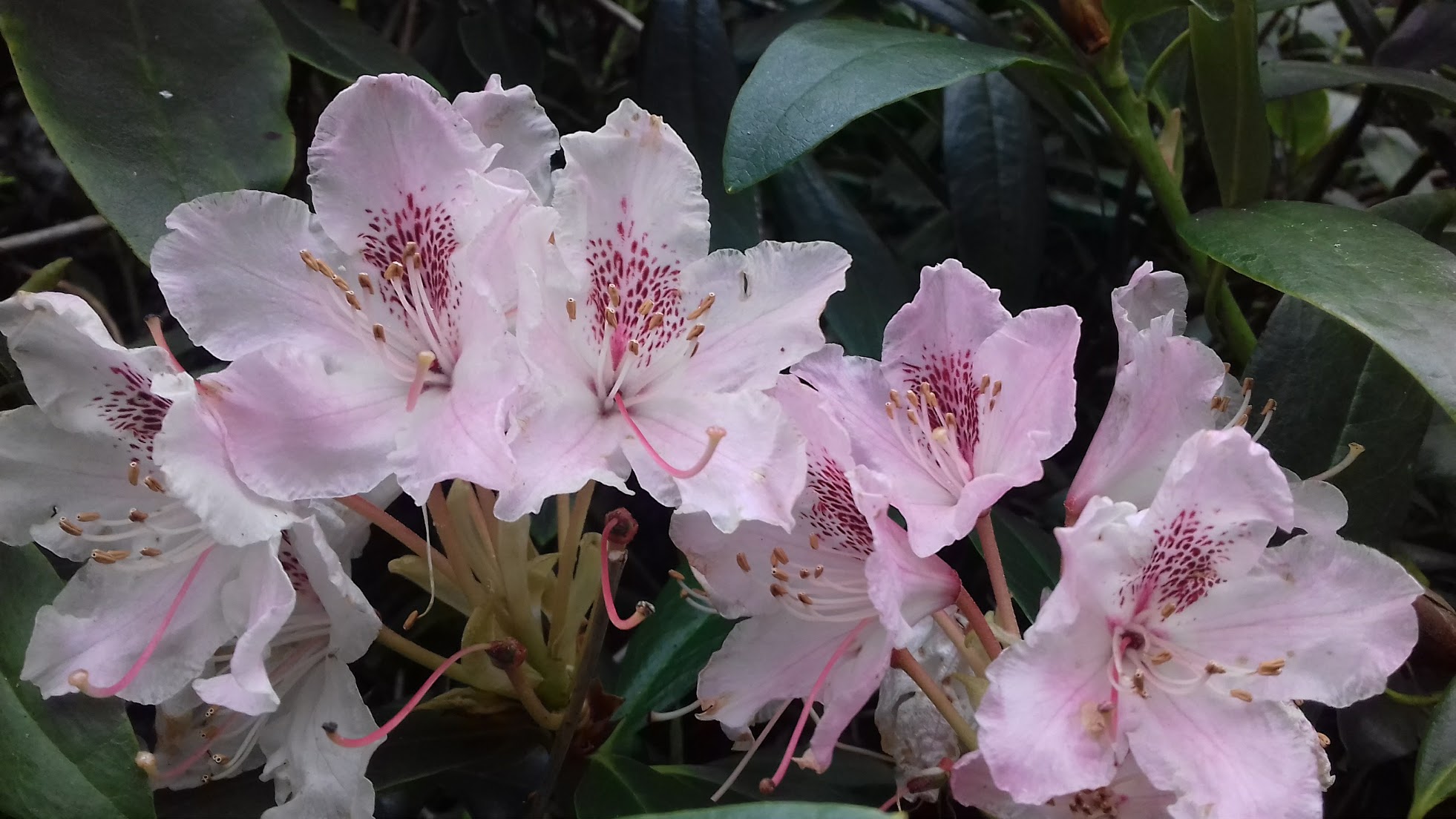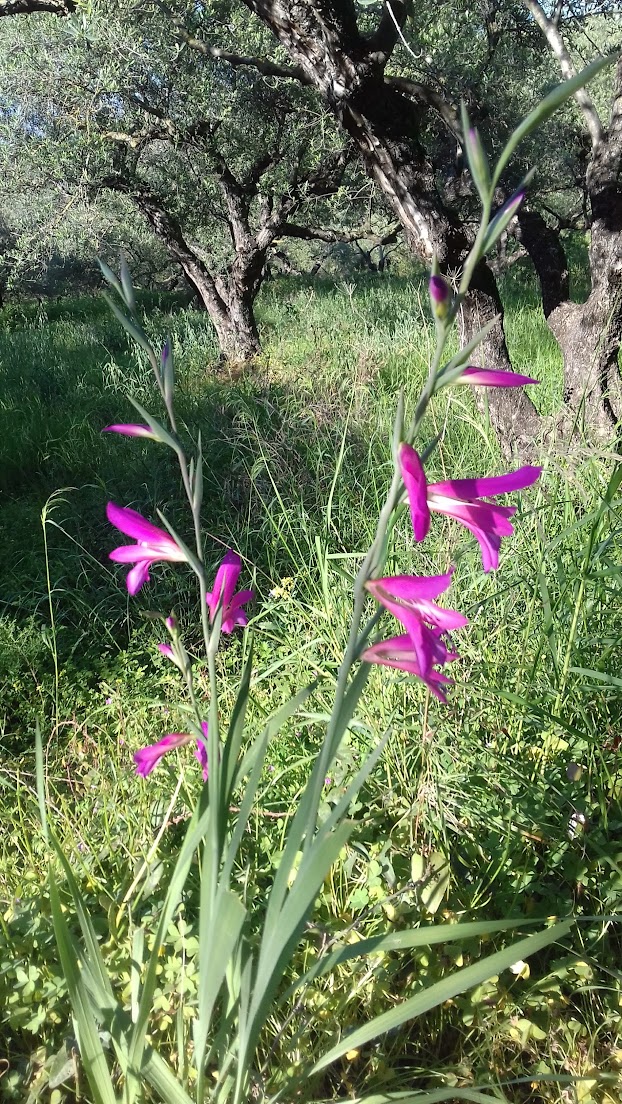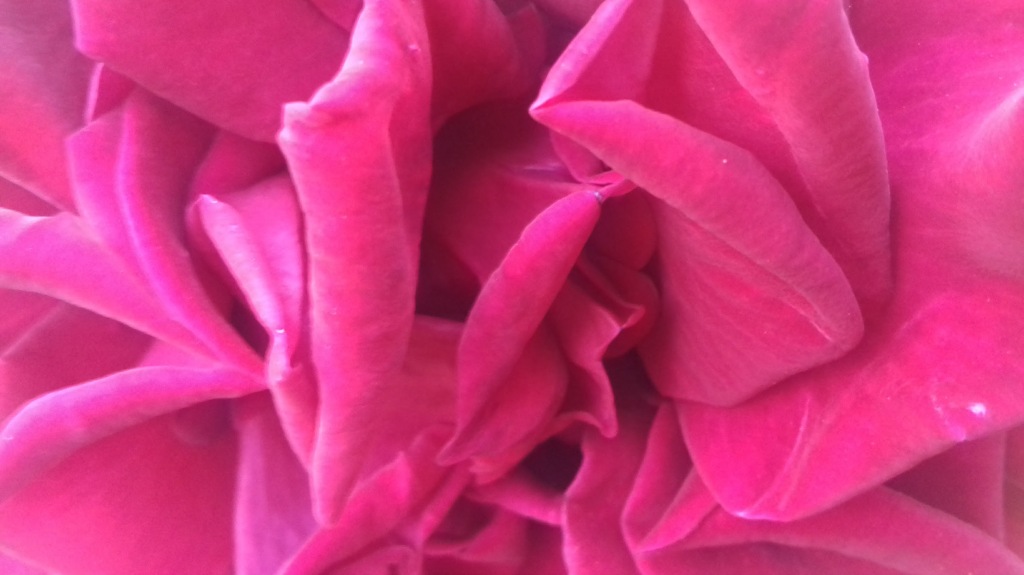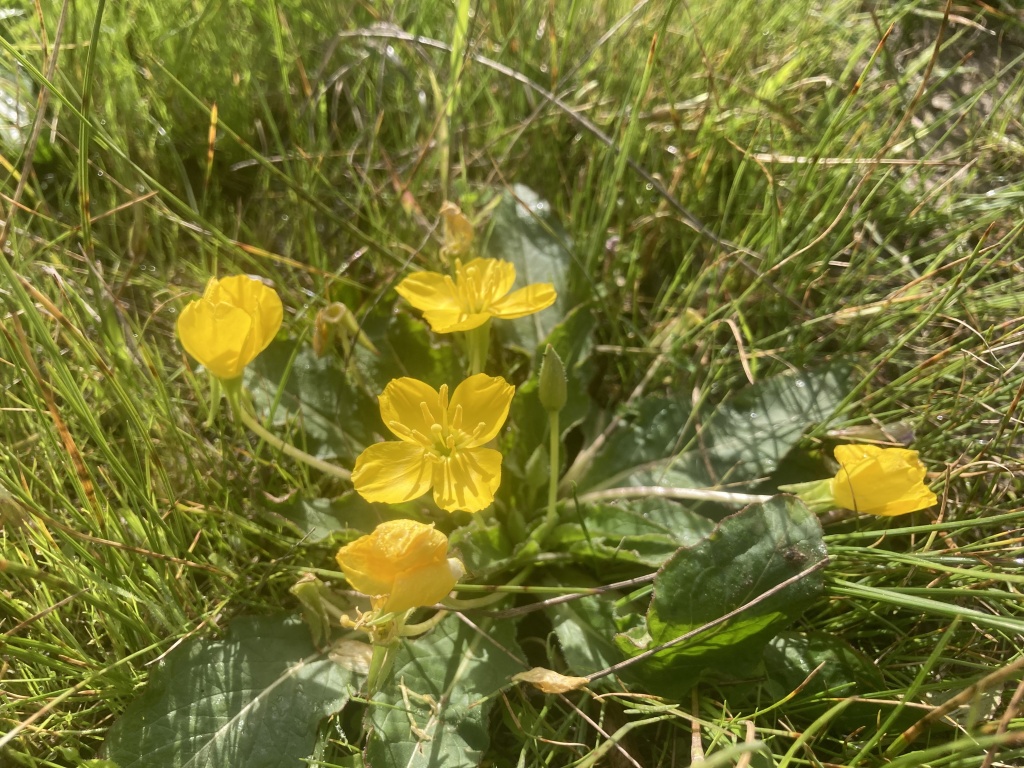
“Never once in my life did I ask God for success or wisdom or power or fame. I asked for wonder, and he gave it to me.” –Abraham Joshua Heschel
Spring has arrived in the Northern Hemisphere, the calendar says. It’s raining outside today but two days ago the world was full of sun and wildflowers. Walking in a field of wildflowers isn’t like walking in the Queen’s Garden at Regents Park, a world redolent with roses, stuffed with enormous, full blossoms filled with color, rich with light.
Wildflowers, on the other hand, are generally small, their forms simple. One might even call their appearance ordinary. But these ordinary flower folk spread across a hillside delight the heart. People long for their appearance, often travel miles to see them, and walk across hillsides for hours in hopes for a glimpse at their ordinary faces. Milkmaids, Douglas iris, buttercups, sun cups, shooting stars, though their forms are ordinary, come spring we long to greet them.
We long for the newness and color spring brings. We want to breathe it in, surround ourselves with swaths of landscape tinted with blossoms–the pale pink blush cherry trees wear, plum blossom’s gowns of white lace, and azalea’s soft pastels. We want to swim in rivers of bluebells, dance through fields of poppies’ brilliant red skirts swirled around their narrow stems. “Colours are the wounds of light,” said Blake. Indeed, as if smitten with Cupid’s dart, springs’ flowers can make us swoon. Though these spring blossoms are small, they can be myriad, their bodies singing in a great chorus their love of being alive, their wish to give more life. Wildflowers come to us of their own accord, not because of something we do. They are an unspoken embodiment of grace, a reminder of all the earth bestows on us, a love letter soaked through with color, wound with light, written in the language of pollen and petals.






There’s nothing a person can do to impress a wildflower, yet in the wonder of their ordinary forms their beauty repeatedly impresses us. In his poem, “The River of Ordinary Moments,” Max Reif writes,
I am stunned by the beauty of the ordinary,
so that sometimes the ordinary seems mis-named, and yet
it is ordinary because it is quiet with no fanfare
…
No one is famous to the ordinary,
you can’t impress it.
If one stops to think about it, the most ordinary of moments in life are also simultaneously filled with the extraordinary. Wildflowers, for all their appearing simplicity in their forms, nevertheless support entire ecosystems. They don’t need pampering. They just want to grow. As Ire’ne Laura Silva writes in her post “Where Wildflowers Bloom,” on the Texas Highways site, “Wildflowers are not just pretty spots of roadside color or willful weeds; wildflowers are a reminder that where life ends, it will return. That beauty endures. That the stubborn and glorious earth harbors and nourishes and compels life to bloom again and again.” Life is in continuous rebirth. What an extraordinary thing to consider as we think about our own life’s revolutions.
When you look more closely at what wildflowers do, it turns out that wildflowers aren’t exactly ordinary. Flowers have an electrical charge to attract pollinators. Our life sustenance depends on those who depend on the pollinators. One of every three mouthfuls of food depend on pollinators. Insects need flowers, and we need flowers too.
Most of us live what we likely consider ordinary lives. We rise each day and do our work. We make plans with family members or friends, experience loss and pain. We learn what we love and celebrate with neighbors. We grow, we change. Humans share the collective knowledge across millennia. If we consider the trajectory of history and the struggles everyday people have faced over time, human experience isn’t particularly ordinary. Leymah Gbowee, who had a significant part to play in ending Liberia’s ongoing civil war, says: “Everyone has a role to play in changing the tide in our world. It has nothing to do with your academic background or your social status. It has to do with your tenacity, your strength and your willpower to want to make change.” Even our own personal struggles to adjust to ongoing change, adapt to new roles and successes, or to cope with our particular illnesses, ongoing pain, or griefs–all of these things require courage, even bravery in the most ordinary of days.

Our lives are made up mostly of these ordinary days. Each of them are full of wonder. It’s wondrous to have rolled topsy turvy across the grass as a child, to have tasted the spark of snowy cold on my tongue, to have jumped through my own arms, felt ocean waves pull against my calves, smelled the sweat from a horse I rode after racing across a meadow, and to have sung with my mother at the piano. It’s wondrous to sense the warmth of my partner’s hand in mine, and to feel my cat’s calm presence beside me. Wonder abounds.
Emily Dickinson wrote “I am Nobody! Who are you?” It’s perhaps out of fashion to be Nobody. These days voices clamber everywhere to be heard. Everybody seems to want to be Somebody. As does all of nature, wildflowers simply want to just go on being what they are. What they are in all their ordinary wonder is needed. They are part of a greater interbeing. Reif goes on to say in his poem,
I do not want to be
taken from the flow of the ordinary
to any pinnacle or promontory from which
I will only have to climb, or fall, down again,
I do not want to be special in that way,
I want the tick of thoughts in my mind to run out
and the storehouse of thoughts to be emptied
and not replaced by any others,
I want to disappear, disappear
and become that current
that all distinct drops are lost in, and then
the ocean into which all rivers go to die.

Flowers bring us together and share their beauty. They fill us with hope. Whether you are able to see wildflowers in person or view photos of them, or simply stand in an open space remembering them and wishing for their presence, may you sense their lives fill you with joy and carry you into a place of gratitude and wonder, and give praise the ordinary.
I leave you with this short film Gratitude with Louis Schwartzberg’s time-lapse photography and words from Benedictine monk Brother David Steindl-Rast. I’ve watched it many times and the beauty it reveals still fills me with gratitude for the wonder of being alive.








